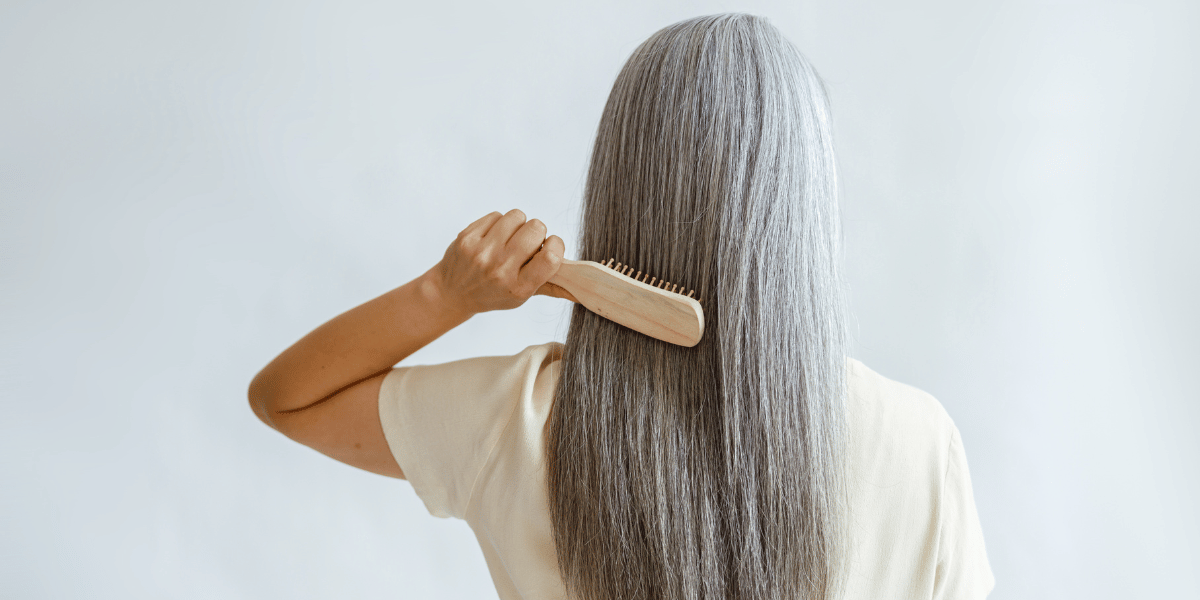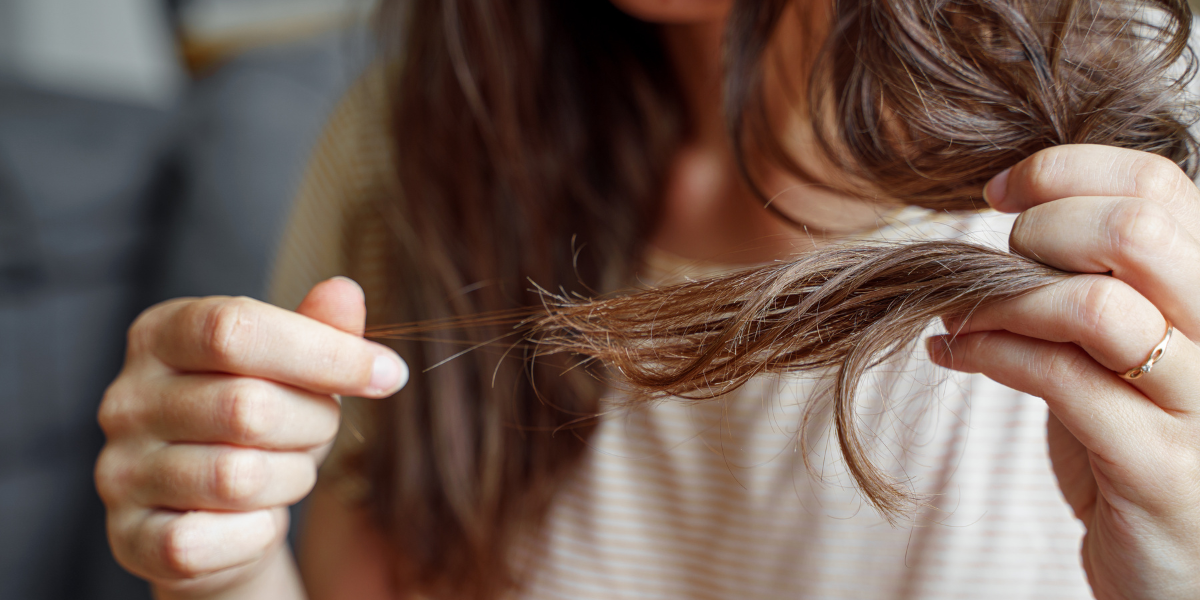The Link Between Eggs and Hair Loss: Separating Fact from Fiction
Hair loss is a common concern that affects millions of people. While aging and stress are well-known culprits, emerging conversations in the health...
.png?width=70&height=70&name=Stark_LogoMark%20(1).png)

As we age, our once vibrant locks start to lose their color and those pesky gray or white strands start to appear. But why does this happen? It's all about melanin, the pigment that gives our hair its color. As we get older, the cells that produce melanin start to slow down, leading to less color production. So, when new hair grows in, it lacks pigment, and voila - gray hair. The age at which this process begins can vary based on genetics, and everyone's hair journey is unique, so some may experience graying earlier or later in life. Whether you want to get ahead of the graying or already embrace your silver strands, take a look into the science of graying hair and uncover if these common questions are based on facts or fiction.
Research suggests that chronic stress might indeed accelerate the graying process in certain individuals. Stress triggers the release of hormones, particularly cortisol, which can interfere with melanocyte activity, leading to premature graying. One study conducted on mice found that stress-induced hormonal changes caused a reduction in melanocyte stem cells, resulting in the depletion of hair pigmentation.
And it's not just in mice. A recent study in 2020 examined the connection between stress and graying hair in humans. The results showed that people with higher levels of perceived stress were more likely to have gray hair, even when considering factors like age. This suggests that chronic stress could be linked to early graying in some individuals.
Plucking a gray hair does not cause more to sprout in its place, despite what some believe. There's no scientific evidence to support this myth. When you pluck a hair, you're only affecting that individual strand's follicle. The surrounding follicles are not influenced, and they will continue to produce hair as usual. However, excessive plucking – regardless of hair color – can harm your scalp. Repeatedly pulling out hairs can lead to inflammation and damage the follicles, which could result in hair loss or thinning over time. So while pulling out one gray hair won't generate more in that same spot, it's best to avoid too much plucking altogether.
If you're tired of your gray hair and longing to bring back your youthful color, you're not alone. While a complete reversal of the graying process isn't possible yet, recent scientific breakthroughs are opening the door to potential treatments. A groundbreaking study published in the Journal of the American Academy of Dermatology in 2022 revealed an exciting finding. Researchers focused on a protein called Wnt, which plays a crucial role in regulating the stem cells responsible for hair color. By targeting this protein, they managed to stimulate melanocyte activity and restore some pigmentation in mice.
Although these discoveries are highly promising, further research is still needed before we can turn them into a viable solution for humans. In the meantime, there are temporary options like hair dyes and treatments available, even if they don't address the underlying causes of graying hair.
As many of us know, gray hair eventually creeps in for everyone. It begins with the slowing down of cells that produce melanin, and it presents itself as white or gray strands scattered throughout our hair. While stress may play a small role in turning your hair gray a little earlier, it's primarily influenced by your genes and the slowing down of melanin production in your hair follicles. Whether you want to rock your silver strands with pride or prefer to cover them up with dyes, knowing the science behind graying hair grants us a new respect for what it represents: the gift of living long enough to age!
Sources:
Ji, Jian-Jun, et al. "Hair graying: Causes, types, and treatment." Ageing Research Reviews vol. 74 (2021): 101533.
Oh, Ju Eun, et al. "Hair graying is associated with perceptions of age and stress: findings from the 2013 and 2014 Korea National Health and Nutrition Examination Survey." Journal of Cosmetic Dermatology vol. 19, no. 6 (2020): 1343-1349.
Xing, Lijuan, et al. "Loss of adult melanocyte stem cells via Wnt signaling-induced melanocyte differentiation is implicated in hair graying." Journal of Investigative Dermatology vol. 142, no. 2 (2022): 397-405.e7.

Hair loss is a common concern that affects millions of people. While aging and stress are well-known culprits, emerging conversations in the health...

Our health and happiness are intricately connected, orchestrated by the interaction among our brain, hormones, and the mind-body bond. Understanding...

Peptides are fast becoming a buzzword in health, wellness, and beauty circles. But what exactly are peptides, and why are they generating so much...